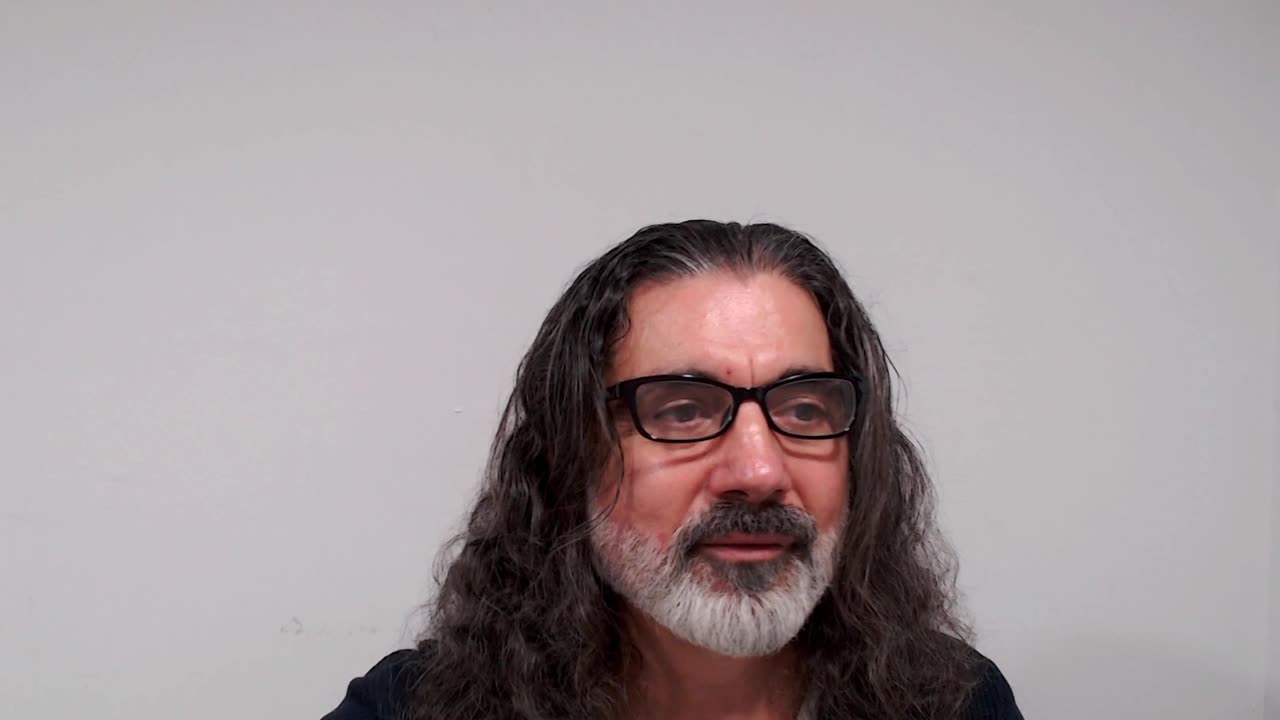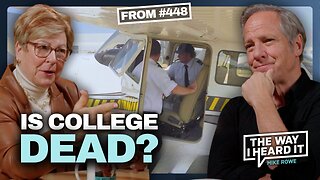Premium Only Content

Shooting From The Hip - 31 - Human Capacity, Human Instincts
Human Nature: general psychological characteristics, feelings & behavioral traits of humankind, regarded as shared by all humans - including ways of thinking, feeling & acting - that humans are said to have naturally, innately
Human Nature: 6 characteristics 1) Intelligence: the ability to acquire & apply knowledge & skills(learning) 2) Curiosity: a strong desire to know or learn something 3) Creative: having or showing an ability to make new things or think of new ideas - involving imagination 4) Adaptive: the ability to adapt to different situations circumstances - capacity to consistently be able to change 5) Emotion: natural instinctive state of mind derived from circumstances, mood, or interactions with others - conscious mental reactions, subjectively experienced 6) Sexuality: capacity for sexual feelings - sexual orientation
According to Plato, the 3 agencies of action within human nature, or the psyche, are 1) appetite 2) spirit 3) reason - 3 primary appetitive drives, or irrational desires, are hunger, thirst & sexual passion. 1. Appetite: a natural desire to satisfy a bodily needs 2. Spirit: nonphysical part of a person which is the seat of emotions & character; soul 3. Reason: - a cause, explanation, or justification for an action or event
Human behavior: is driven by rewards & punishments in addition to the drive to fulfill the need for a sense of significance
Human Instinct: an inborn impulse or motivation to action -performed in response to specific external stimuli
Sympathy - is considered by some as our strongest instinct - Human beings have survived as a successful species because we have evolved the capacities to care for those in need & to cooperate.
3 human instincts: Self-Preservation, Social & Sexual - Self-Preservation instinct focuses on protecting our body, our health & ensuring we have enough resources to survive in the future
Maslow's Hierarchy Of Needs - a theory of motivation which states that 5 categories of human needs dictate an individual's behavior 1) physiology 2) safety 3) belongingness/love 4) esteem 5) self-actualization
1. Physiological: needs essential for human survival - food, shelter & clothing
2. Safety: protection from elements, security, order, stability-emotionally psychologically
3. Sense of Belonging: need to give & receive love, sense of belonging
4. Esteem: confidence, strength, self-belief, personal & social acceptance & respect from others
5. Self-Actualization: the desire to reach our full potential
Biological Imperative - identifies a need that must be fulfilled for a living organism to perpetuate existence 1) survival 2) reproduction
Survival/Social Connectedness: social connectedness is a core biological imperative for humans, since human survival is dependent on trust in others
Reproduction: if a species is to persist, they must by definition reproduce to ensure the continuation of their species
Polyvagal Theory - proposes the evolution of the mammalian autonomic nervous system provides the neurophysiological substrates for adaptive behavioral strategies
Instinct - an innate, typically fixed pattern of behavior in animals in response to certain stimuli - imbued or filled with (a quality, especially a desirable one) - apparently unlearned, genetically determined behavior
Psychology: instinct theory of motivation refers to the concept that all humans are evolutionarily designed in a way that helps them survive - these are instincts that drive a person's decisions & behaviors
Aggression - a primal drive & biological self-preservation, a survival function - it is also informed as a result of direct ties to emotional states: hate, fear, resentment, anger - responses to the external stimuli which impact the subject
Evolutionary Psychology: - often the Four Fs - said to be the most 4 basic & most primal drives (motivations or instincts) that animals (including humans) are evolutionarily adapted to have, follow & achieve: fighting, fleeing, feeding & Fucking (mating)
Human capacity means development or improvement of individual knowledge, skills, technical expertise & ability to adapt
Capacity - Improve Human Capacity - Human capacity development has been defined as – process of learning by which individuals, groups, organizations, institutions & societies develop their abilities - both individually & collectively - to set & achieve objectives, perform functions, solve problems & to develop the means & conditions required to enable this process - it teaches individuals to develop themselves & skills more effectively & efficiently – apply said development - to strengthen & evolve competencies across all aspects of being human - Human Capabilities include life, bodily health, bodily integrity, sense, emotions, practical reason, affiliation, relations & respect with & for other species, play & control over environment - recognize that human capabilities are always changing & technology has already played a significant part in this
-
 1:39:16
1:39:16
The HotSeat
13 hours ago👉 STOP Blaming Each Other — Look at the Media!
24.7K25 -
 22:34
22:34
The Pascal Show
9 hours ago $0.01 earnedFEDERAL CHARGES?! Iryna Zarutska's Attacker Gets Hit With Federal Charges After Fatal Train Attack
3.51K7 -
 LIVE
LIVE
Lofi Girl
2 years agoSynthwave Radio 🌌 - beats to chill/game to
213 watching -
 13:05
13:05
Mike Rowe
4 days agoIs College DEAD? Inside America’s #1 Trade School | Sheree Utash From #448 | The Way I Heard It
72.7K26 -
 3:01:13
3:01:13
FreshandFit
5 hours agoAyesha Curry Never Wanted Steph Curry
61.4K11 -
 23:28
23:28
DeVory Darkins
10 hours ago $10.50 earnedTrump official ANNIHILATES Democrats in heated debate as CNN gets caught sympathizing with criminals
26K71 -
 1:02:26
1:02:26
The Nick DiPaolo Show Channel
12 hours agoPOC Murders Another White Woman | The Nick Di Paolo Show #1790
61K71 -
 2:04:29
2:04:29
Inverted World Live
8 hours agoNew UFO Hearing Testimony: Lockheed Martin Has Alien Technology | Ep. 105
69.6K8 -
 5:00:59
5:00:59
Akademiks
6 hours agoYNW Melly MIGHT BE COOKED! Co-D TELLLING? 6ix9ine vs Young Thug . Drake vs Kaicenat? HOLLY
34.5K2 -
 4:46:45
4:46:45
Drew Hernandez
12 hours agoHORRIFYING: FULL FOOTAGE OF IRYNA ZARUTSKA MURDER HAS BEEN RELEASED
36.4K37